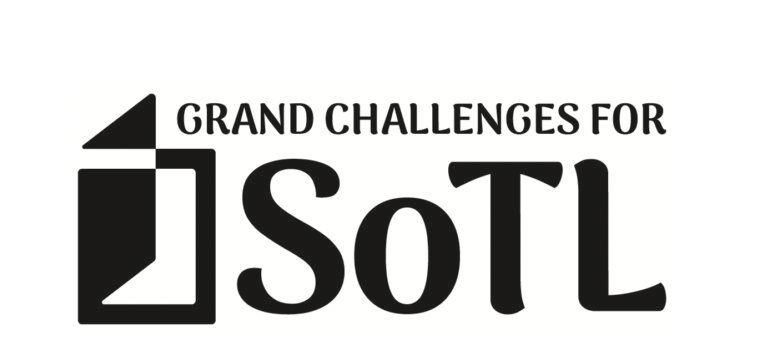General Exam Writing Tips ↓
1.Preview the exam. Set goals for time and pace yourself accordingly
Read over the questions. Take note of which questions seem easier and which look more difficult. Allocate time appropriately, considering the number of questions, the number of points they are worth, and the total time available. If you are given options, decide which questions you will be answering ahead of time.
2.Start with multiple choice.
If your exam is in multiple formats, answering multiple choice questions first can sometimes help jog your memory of key concepts or terms and can help inform longer-answer questions.
3.Start with easy questions.
Begin with questions pertaining to material you know well. Answering the easy questions first helps maximize your grade. It is also a good time management strategy, because you won’t waste time labouring over troublesome questions at the outset of the exam.
4.Recycle through the test.
After completing easy questions, return to the beginning of the exam and attempt those you could not do on the first pass. Sometimes the answer will occur to you simply because you are more relaxed after having answered other questions. Sometimes, too, clues in later questions can help you choose the best answer to questions earlier in the exam.
5.Read the questions carefully, twice if necessary.
Avoid jumping to conclusions about what you think the question asks.
Multiple Choice Exams ↓
Multiple Choice Exam Strategies:
1.Set goals for time and pace yourself accordingly.
Multiple choice questions are usually equally weighted, so set time limits for each question, and stick to them. Save a few minutes at the end for review and revision.
2.Circle or underline key words in questions.
Multiple choice tests examine your ability to read carefully and thoughtfully as much as they test your ability to recall and reason. Watch for words like all, always, never, none, few, many, some, sometimes.
3.Be wary of descriptive words which are overly exclusive or overly inclusive.
Words like always, never, completely, and only are absolutes. Relative words like often, usually, seem and may are often more accurate, as they allow for complexity and exceptions. Absolute terms tend to portray things as entirely right or wrong where this is often not the case.
4.Try to recall a concept from memory or think out the answer before looking at the options.
Doing this successfully may help you "wade through" the alternatives and find a reasonable answer.
5.Consider the true/false label strategy.
Label the alternative answers as true or false statements and then look for a pattern in the answers
6.Sometimes alternatives differ by only one or two words or in the order of one or two terms.
These can seem very confusing. It helps to read the question with each possible choice while covering up the others. By thinking through the alternatives, you may be able to make more sense of the options by labelling them true or false and eliminating those that don't correctly complete the question.
7.Be alert to terminology that links the alternatives or questions to key areas of the course, lectures, or chapters of a course's materials.
This may help you narrow the field of possible choices and think through to the best answer.
8.Translate double negative statements into positive ones.
Examples like "Not lacking" or "not none" become "having" and "some" and this can reduce confusion. Note that these are often partly in the stem and partly in the choices of a particular question.
9.Use the hint of highly similar pairs.
Often the answer is imbedded in one of two very similar answers and the "most correct" answer is often the one that correctly uses course terminology; consider the “all /none of the above” cues — if two of the preceding alternatives are opposites then one of them and the “all/none of the above” choice is also wrong.
10.Be prepared to change your answer.
Your first answer may not always be your best answer. Change answers, but only if you can identify a clear reason why your first response was incorrect. Do not simply make changes on the basis of nervous feelings.
11.Answer all the questions.
Never leave a multiple choice question unanswered. Provide your best guess for those questions that you have left blank. A guess may turn out to be correct, but an unanswered question will always receive a zero.
12.If you must guess, look for some of these possibilities:
the style of an answer option is very different from all of the others - this may disqualify it;
the grammar of the question stem is not in agreement with the grammar of an alternative;
some alternative is not in the area or topic of the question, but comes from some other part of the course- this may disqualify it.
Overall, remember that you are looking for the best answer, not one that is merely correct, and not one which must be true all of the time, in all cases, and without exception.
Short Answer Exams ↓
Writing Short Answer Questions
Short answer questions are usually used to test knowledge that cannot be encapsulated within multiple choice questions. Answering short answer questions thus requires not only knowledge of concepts, but also a deeper understanding of relationships and ideas. These questions often ask you to integrate and apply what you have learned.
Short answer questions are often composed of multiple parts. When studying, anticipate a potential question and ask yourself ‘What else could be asked about this concept? How does this concept relate to another key concept in the course?’
Think about how certain categories relate to each other. For example:
- Cause and effect relationships
- Compare and contrast related concepts
Writing the exam
- Remember to read carefully. When reading a question, underline important words in the instructions. Consider their meanings and what you’re being asked to do.
E.g. Discuss, define, explain, compare, analyze
- Pay close attention to the number of marks a question is worth. That will indicate how many points or ideas you are expected to communicate. Getting part marks on a question is better than getting none, so be sure to write down what you know, even if it is not complete.
- Do not include irrelevant or unrelated information to try and get more marks. Answer only what is asked. Giving irrelevant information can backfire, because it suggests that you misunderstood the question, or by making the relevant information more difficult to locate within your answer. Use a piece of scrap paper to jot down your ideas if the answer is not immediately clear.
- If you are struggling with a question or using too much time, move on, but mark the question with a star or check mark and return to it when/if you have extra time at the end.
- Do not hand in your exam until you have reviewed your answers thoroughly. Ensure you have given the best answers you can for every question (and remember to turn the page over, just in case).
Essay Exams ↓
Studying for essay exams
Memorizing
- Memorization is a skill that can be developed and learned. Rather than aiming for total recall of course material, identify important themes and topics, and use these to focus your understanding of specific facts and particular readings.
Organizing
- Organize important information (fundamental ideas, themes, central concerns, etc.) into patterns/broad categories, for example,
- postmodern theories; religion and the state; modern South Asian culture; 21st century health concerns etc. Engage with the material by creating summary sheets, booklets, mind maps, flow charts, or historical timelines that clarify these categories and identify connections between them.. Identifying relationships will also help with recall. Often questions will come up in class that can signal these relationships; for example,
- How do modern cultural patterns affect health in South Asia?
- Do religious values influence state policy?
Anticipating
- For each theme or issue, anticipate a few questions that could be on your exam. You could also study with peers to share potential essay questions.
- Think about how you would answer those questions and write brief answer outlines as part of your preparation for the exam.
- Even though you might not be able to guess the exact questions, writing brief answer outlines will give you a structured starting point going into the exam. You may be assigned questions with similar themes to the ones you anticipated, and you may only need to adapt your prepared outline, rather than recalling and organizing information on the spot.
Writing essay exam questions
Time Management
- Allocate your time wisely; do not spend too much time on a single essay to the detriment of others.
Reading the Questions
- Before writing, read over the exam question carefully. To be sure that you are answering the question correctly,
- Underline any terms in the essay question that you recognize from the course material.
- Check for essay question terms, such as “define,” “describe,” or “explain.” These all have separate meanings and will influence the way you approach the question. See Terms for Essay and Reports for definitions of these terms.
- Essay questions often have two parts. Be sure that you can recognize these situations and answer accordingly. For example:
Describe the terms dystopic and utopic, and how these affected the Indian political system after 1949.
Here, the important parts are:
- Dystopic and utopic as terms learned in the course.
- Affected, meaning impacted, influenced, and to act upon.
- Indian political system, which provides location and structure.
- After 1949, which provides context, in this case a time period.
The first question is 'Describe the terms dystopic and utopic'. This is divided from the second questions by a comma and the word “and.” To answer this part, describe each term separately. Describe means, “In a descriptive answer recount, characterize, sketch or relate in narrative form” the two terms.
The second question is how these affected the Indian political system after 1949. Here, you are asked to show the effects of the two terms, dystopic and utopic, on the Indian political system, but only after 1949. From this, it would be reasonable to think that 1949 is a key date in Indian political history.
Strategy
- Plan each essay with an outline of possible points. Including an outline can sometimes contribute to partial points if you run out of time to complete the question. It will also keep you focused on the answer that’s been requested, saving time for other questions on the exam.
- When answering your questions, write only what’s necessary and relevant; do not include irrelevant info simply to fill up your pages.
- Make sure your essay is 1) focused; 2) organized; and 3) supported.
- Don’t say something is true unless you can prove it by giving examples
- Double space your essay. This gives you room to make changes or additions. It also makes your handwriting easier to read during the grading process.
Structure
Introduction
- Get right to the point and state your thesis in the first sentence or two.
- Use your first paragraph to provide the outline of the essay, i.e., your main points and argument(s).
Body
- Begin each paragraph with a key point from the introduction. Remember to use topic sentences that will allow your reader to understand what you’ll be discussing in each paragraph.
- Develop each point thoroughly within your paragraph, providing examples and supporting information.
- Use transitions to connect your points; for example,
Additionally, as a result, first, second, third, therefore, because, or however.
- Avoid absolute statements (e.g. always, never, everyone, everywhere).
A qualified statement acknowledges complexity and exceptions, avoiding over-generalizations.
- Avoid guessing at exact details:
If you are not sure of an exact date, it is better to write: “toward the end of the 19th century”, than to incorrectly write a specific date; e.g., “in 1894.”
- As you write, you may think of a new sub-point or idea that contributes to a part of your essay that you have already written. If needed, write these points neatly in the margin or on a separate page with arrows, marks, numbers, or symbols that direct the reader to the appropriate statement at the appropriate point in your answer.
Conclusion
- Conclusions are often overlooked in exam essays - be sure that you include one!
- Summarize your thesis and main points in a sentence or two.
- Be sure to show significance as you would in any essay.
Review
- Once you have completed all questions, read over the essay question(s) and the essay. Make sure that you’ve answered all aspects of the question.
- Do your best to use proper conventions of language (e.g. avoid contractions and conform to academic style and grammar).
- Ensure any corrections are legible and that your handwriting is readable.





























